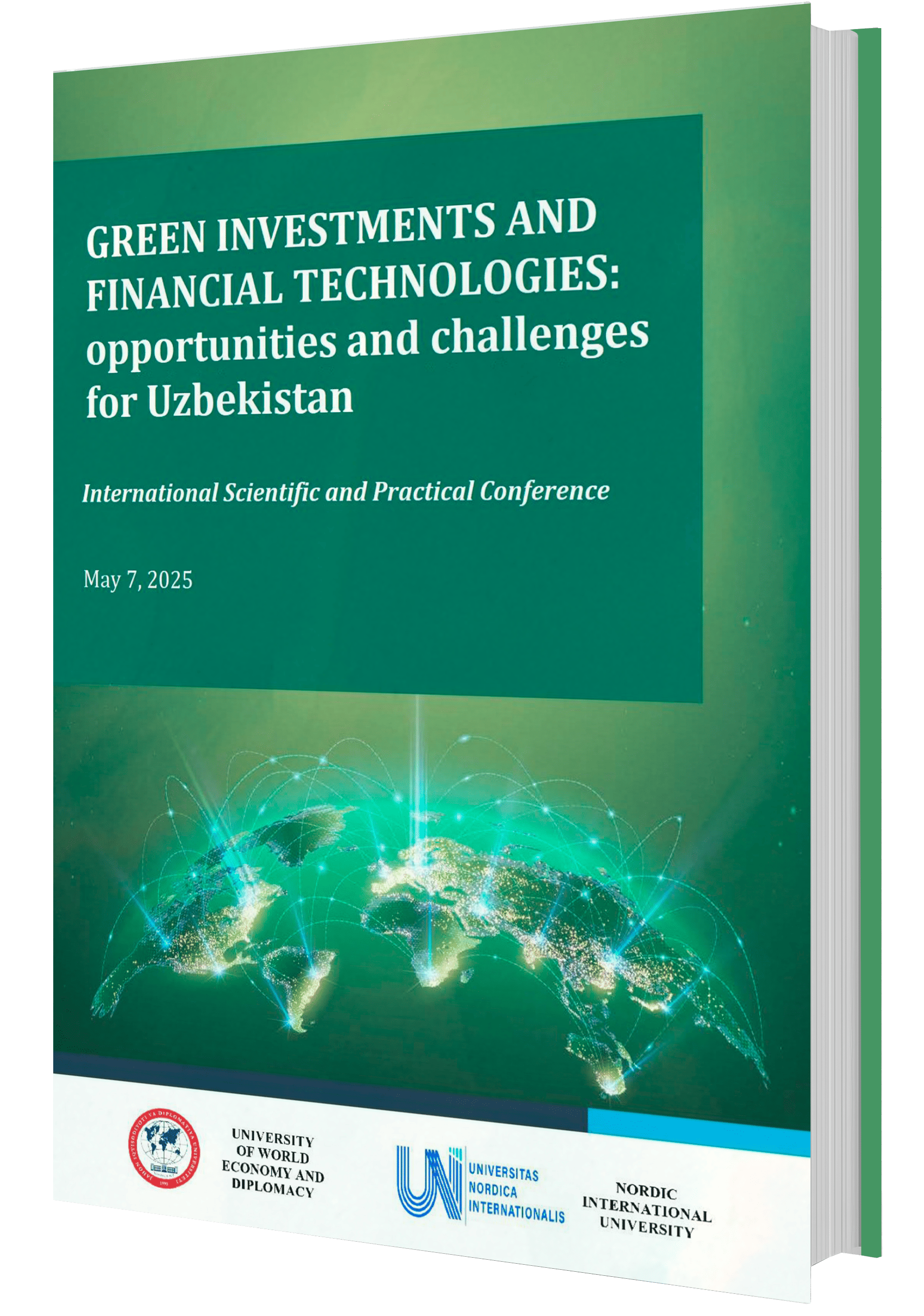FINANCIAL TECHNOLOGIES IN GLOBAL MARKETS: IMPLICATIONS OF FOREIGN EXPERIENCE
Ключевые слова:
Financial technologies (FinTech), economic growth, financial inclusion, digital paymentsАннотация
In the contemporary digital era, financial technologies (FinTech) have emerged as transformative instruments reshaping economic structures and financial service delivery worldwide. This paper explores the multifaceted relationship between FinTech and economic growth, integrating theoretical models such as Romer’s endogenous growth theory and Schumpeter’s creative destruction, alongside empirical evidence from both developed and emerging economies. Case studies from China, India, the United States, the United Kingdom, Singapore, and Uzbekistan reveal that high FinTech adoption correlates with improved GDP
performance, entrepreneurial activity, and capital formation. The paper presents policy recommendations focused on integrated regulation, inclusive digital infrastructure, and responsible innovation to maximise FinTech’s developmental potential, particularly in emerging markets such as Uzbekistan.
Библиографические ссылки
Ahmad, M., Turel, O., & Yilmaz, M. R. (2020). Financial inclusion through
digital financial services: Evidence from developing countries. Emerging Markets
Finance
and
Trade,
(2),
–464.
https://doi.org/10.1080/1540496X.2019.1658060
Ant Group. (2024). Annual Financial Technology Report. Retrieved from
Arner, D. W., Barberis, J., & Buckley, R. P. (2020). The Fintech evolution:
Triangular drivers of change. Georgetown Journal of International Law, 47, 1271–
Beck, T., Demirgüç-Kunt, A., & Levine, R. (2016). Financial institutions and
markets across countries and over time: Data and analysis. World Bank Economic
Review, 24(1), 77–92.
Cevik, S. (2024). Fintech and economic growth: New empirical evidence from
global panel data. IMF Working Paper Series. Washington, DC: International
Monetary Fund.
CTMfile. (2023). China’s global digital payments dominance: Catalysts and
future prospects. Retrieved from https://www.ctmfile.com
European Commission. (2023). Crowdfunding Regulation Report: Capital
markets and SME access. Brussels: European Union Publications.
EY. (2023). Global FinTech Adoption Index 2023. Ernst & Young. Retrieved
from https://www.ey.com/fintechindex
IMF. (2021). The Promise of Fintech: Financial Inclusion in the Post COVID-19
Era. IMF Staff Discussion Notes. https://www.imf.org/en/Publications/Staff-
Discussion-Notes
Indian Ministry of Finance. (2023). Annual Economic Survey 2022–2023. New
Delhi: Government of India.
Juraboeva, D., Sagdiddinov, M., & Malikov, N. (2025). PREDICTING
FINANCIAL CRISIS: THE POTENTIAL OF AI IN GLOBAL MARKETS.
Modern Science and Research, 4(4), 1770-1781.
Kim, Y., Park, Y. J., Choi, J., & Yeon, J. (2018). The adoption of mobile
payment services for “Fintech”. International Journal of Applied Engineering
Research, 13(5), 2781–2788.
Li, Y., Wu, H., & Xiao, J. J. (2019). The impact of digital finance on household
consumption: Evidence from China. China Economic Review, 55, 1–17.
https://doi.org/10.1016/j.chieco.2018.10.005
Mahmud, K., Joarder, M. M. A., & Sakib, K. M.-U. (2023). Adoption factors of
FinTech: Evidence from an emerging economy country-wide representative sample.
International
Journal
of
Financial
Studies,
(9).
https://doi.org/10.3390/ijfs11010009
Mastercard. (2023). Fintech Market in Uzbekistan: Executive Summary Report.
Tashkent: Mastercard & IT Park Uzbekistan.
OECD. (2022). SME and Entrepreneurship Outlook 2022. Paris: Organisation
for Economic Co-operation and Development.
Philippon, T. (2016). The FinTech opportunity. NBER Working Paper No.
https://doi.org/10.3386/w22476
Romer, P. M. (1990). Endogenous technological change. Journal of Political
Economy, 98(5), S71–S102.
Загрузки
Опубликован
Выпуск
Раздел
Лицензия
Copyright (c) 2025 Umida Sharipova, Farangiz Ibragimova

Это произведение доступно по лицензии Creative Commons «Attribution-NonCommercial» («Атрибуция — Некоммерческое использование») 4.0 Всемирная.
Условия лицензии
Эта работа доступна под лицензией Creative Commons Attribution-NonCommercial 4.0 International License. Чтобы просмотреть копию этой лицензии, посетите http://creativecommons.org/licenses/by-nc/4.0/ или отправьте письмо по адресу Creative Commons, PO Box 1866, Mountain View, CA 94042, США.
По этой лицензии вы можете:
Поделиться — копируйте и распространяйте материал на любом носителе и в любом формате.
Адаптируйте — делайте ремиксы, трансформируйте и дорабатывайте материал.
Лицензиар не может отозвать эти свободы, если вы соблюдаете условия лицензии. На следующих условиях:
Атрибуция. Вы должны указать соответствующую ссылку, предоставить ссылку на лицензию и указать, были ли внесены изменения. Вы можете сделать это любым разумным способом, но не таким образом, который бы предполагал, что лицензиар одобряет вас или ваше использование.
Некоммерческое использование — вы не имеете права использовать материал в коммерческих целях.
Никаких дополнительных ограничений. Вы не имеете права применять юридические условия или технологические меры, которые юридически запрещают другим делать все, что разрешено лицензией.





